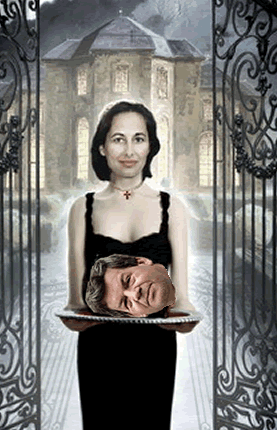|
|
|||||||||||||||||||||||||
Droit
Fondamental
|
||||||||||||||||||||||||||
 Marcel
Vervloesem: science of human limits
Marcel
Vervloesem: science of human limits 
This Tuesday, October 7, Marcel Vervloesem's 57th birthday, when the prison regulation allows a double visit, the Belgian authorities planed that he had to spend the day in a cellular wagon passing by all prisons in Flanders, before arriving in the evening to that of Turnhout. He had to inject himself three doses of insulin and swallow 14 tablets that are necessary on the road, without other choice.
His lawyer had confirmed the transfer on the evening before, but there has been a last minute change of programme. The torture day of that man who should be in hospital has been postponed to next Friday. He was simply deprived of visit for his birthday, maybe his last one.
Marcel Vervloesem, who has brought more than 100,000 evidences showing the commercialisation of pictures of murder, rape and torture of children, is incarcerated for acts to medicine that recognizes he unable to do. He made a 26 days hunger strike, matched for 7 days with a thirst strike, calling for the respect of the constitutional right of witnesses and victims of organized crime.
The Department of Justice opposed the hospital prescribed by the prison doctor of Turnhout on the 5th day of the strike, according to the journalist Meulemans. An isolation cell had been reserved for him at the prison infirmary of Bruges, where the doctor yields to the diagnostic made at a distance by the minister.
The decision to bring him back to a prison without infirmary was taken before the prison doctor had examined him, to see the effects of dehydration and before the first exams to convene of the medical treatment of his triple cancer. He has no recollection of the implementation of the hydration protocol (*), which presumes that it has been done when he was in coma.
Marcel Vervloesem was looking forward of the end of the isolation, to meet Pascal Taveirne, at the origine of the Koala operation, which is related to the network he denounces since 1988. He is trying to understand by what miracle the Bruges justice allowed him to continue exploiting his daughters until 2006, whereas INTERPOL had identified him in 2002, as he abused them at the ages of 5 and 6.
But the treatments were so heavy that he had to it give-up, as he had to give-up the advantages of the Bruges prison that grants six visits per week, for the prison of Turnhout that grants only three.
The NGO Werkgroep Morkhoven envisages to request the Belgian state to answer of its refusal to treat its complaint of March 4, 2001 against the paedocriminal network Zandvoort, which was supported by the 100.000 parts discovered by Marcel Vervloesem. His condemnation would be enough to claim the destruction of these parts, by a new simulation of miscarriage of justices and administrative mistakes and the abuse of the law which limits the conservation of personal data to the duration of the investigations.
But the plaintiff NGO was not invited to consult the file, nor to participate to the debates of the Vervloesem case. The Werkgroep Morkhoven is not represented by Marcel Vervloesem, but by Jan Boeykens, who is its president. Justice cannot destroy the evidences that illustrate a complaint, under pretext of the classification of a file whose connexity appeared insufficient to invite the initial plaintiff.
The European Court of Human Rights has to judge legality of the imprisonment and judgment of Marcel Vervloesem, pronounced passed the reasonable delay and in absence of dozens of discharging evidences. Belgium will be able to plead, by the means a ministerial decision allotted to doctors, that Marcel Vervloesem is in perfect health and must remain in prison pending the final judgement. He accepted the transfer only to avoid inhuman treatment, which invalidates the argument.
The only surprise is that the press agent Belga has not yet published its usual defamation to cover the macabre cynics of Belgian authorities.










